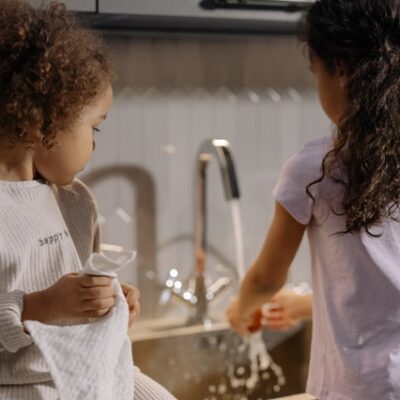Due to their underdeveloped immune systems and high exposure to germs at school and other childcare facilities, children are more vulnerable than adults to sickness caused by germs. Children seldom understand the importance of good hygiene habits, which further raises their susceptibility to illness. Thus, teaching them about germs during their early learning stages is very important. Educating your children about germs is increasingly necessary given the global COVID-19 pandemic. Research has shown that explaining basic hygiene to kids at an early age can help them be more germ-conscious in the long run. Here’s how you can teach your children about germsꓽ
Understand Germ Education
To properly educate your children about germs, you must first understand the topic yourself. Teaching about germs can be tedious, and proper preparation can reduce confusion. If you have difficulty finding reliable information, you may want to consult a pediatrician. Pediatricians can provide you with information to help you to explain the complex topic.
Use Simple, Easy to Understand Terms
Ensure that your children fully understand the information by explaining it using simple language. It also helps to use examples to which they can relate. Online resources provide videos and other materials that help make lessons simple and easy to understand.
Make Lessons Fun
Children have a much shorter attention span than adults, and learning about germs can be boring. When teaching them, it’s important to make the lessons fun and interactive. Exciting and interactive activities help children get engrossed in the subject, which helps them better retain information. You can make the lessons fun by using music and games. Online resources can help you find fun games and activities that you can do with your kids.
Teach Them How to Avoid Germs
Children should know what germs are and how to avoid them. You will need to teach them to cultivate healthy habits that help them avoid germs and prevent them from spreading to others. These habits includeꓽ
- Avoiding sharing certain personal items with others, such as eating utensils.
- Keeping a safe distance from anyone who is sick. For example, anyone who is sneezing, coughing or has a runny nose.
- Covering a cough or sneeze.
Teach Them Proper Handwashing
Washing your hands is an effective way to prevent the spread of germs. Instructing your children how to wash their hands properly is very important. Show them how to lather and scrub all surfaces of their hands for at least 20 seconds before rinsing. Furthermore, teach them when to wash their hands – for example, before and after meals.
Make Germ Education a Part of Everyday Life
Another way to ensure your kids learn about germs is by making lessons a part of everyday life. When doing day-to-day activities such as cleaning, explain how maintaining a clean environment helps keep them safe from germs. That deepens learning and helps them cultivate good long-term habits.
Create the Best Environment for Early Learning
The environment in which your child learns is just as important as the lessons themselves. With the new school year quickly approaching, finding a preschool that focuses on providing top-quality education and a safe environment is vital. At Rothewood Academy Early Learning centres, our unwavering commitment to holistic education is what makes us unique. This commitment includes providing a safe and healthy environment where our students can thrive and learn. Our team of capable teachers and caregivers ensure that your children are safe while entrusted to our care. Call or visit our website today to schedule a tour and learn more about our schools.


Leave a Reply
You must be logged in to post a comment.